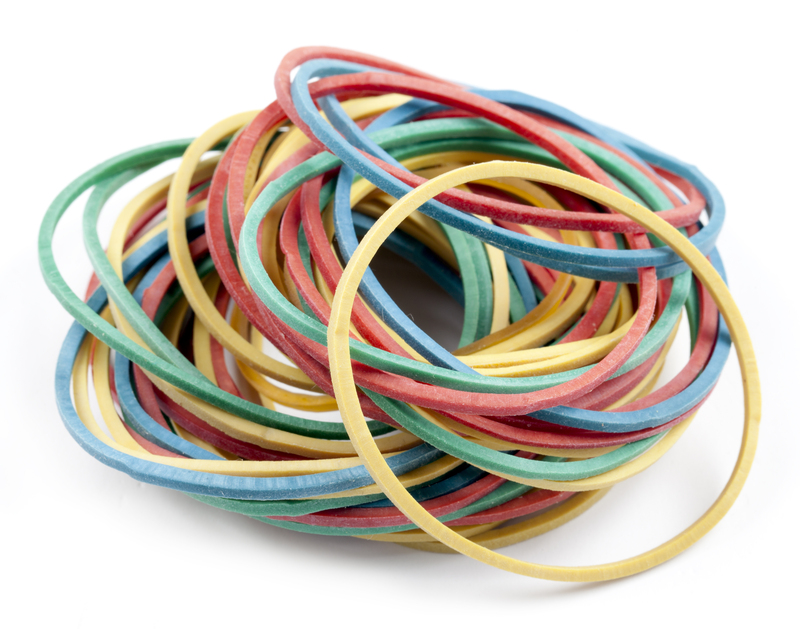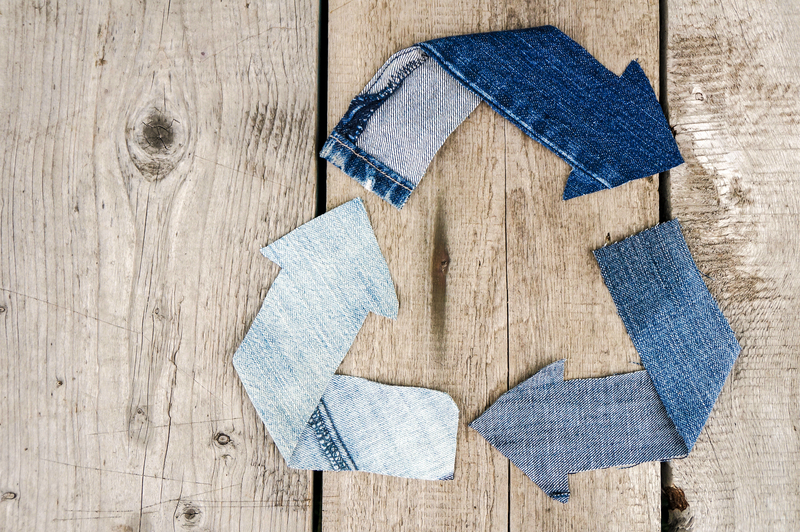Sustainable Substitutes for Plastic Products
Posted on 08/12/2024
As the global community becomes increasingly aware of the environmental impact of plastic pollution, there is a growing demand for sustainable substitutes for plastic products. Single-use plastics, in particular, have come under intense scrutiny. With oceans choking on plastic waste and landfills overflowing, it's crucial to explore alternatives that not only meet consumer needs but also protect the planet.
The Environmental Impact of Plastics
Plastics have been indispensable in modern society due to their versatility and low cost. However, their environmental footprint is substantial. Plastics are primarily derived from fossil fuels, leading to significant carbon emissions during production. Moreover, plastics are non-biodegradable, often persisting in the environment for hundreds of years. They break down into microplastics, which enter the food chain and pose health risks to both marine life and humans.

Why We Need Sustainable Substitutes
Transitioning to sustainable substitutes for plastic products is essential for several reasons:
- Environmental Preservation: Reducing plastic use helps to lower pollution levels and mitigate climate change.
- Health Benefits: Limiting plastic exposure can reduce the ingestion of harmful chemicals and microplastics.
- Resource Conservation: Substitutes often rely on renewable resources, helping to conserve finite resources like oil and gas.
Bio-based Plastics
Bio-based plastics, derived from renewable sources such as corn starch, sugarcane, and potato starch, are gaining popularity. These plastics have a similar look and feel to conventional plastics but come with a reduced carbon footprint. Polylactic acid (PLA) and Polyhydroxyalkanoate (PHA) are two commonly used types of bio-based plastics.
While they're more sustainable than petroleum-based plastics, it's important to note that not all bio-based plastics are biodegradable. However, those that are compostable can significantly reduce waste in landfills.
Edible Packaging
Imagine eating the wrapper along with the snack. Edible packaging made from natural ingredients like seaweed, rice paper, and potato starch is redefining the food packaging industry. This innovative approach eliminates waste entirely, providing an eco-friendly alternative that doesn't compromise on functionality.
For instance, seaweed-based packaging is not only biodegradable but also edible and rich in nutrients. This type of packaging can be particularly useful in situations where waste management is challenging, such as festivals and outdoor events.
Plant-Based Materials
Materials derived from plants, such as bamboo, hemp, and cork, offer robust and versatile alternatives to plastic. Bamboo, for instance, is fast-growing and highly sustainable. It can be used to make everything from cutlery and cups to furniture and flooring.
Hemp is another promising material, featuring strong fibers that can be used in textiles, automotive parts, and building materials. Hemp plastic is both biodegradable and recyclable. Cork, harvested from cork oak trees without harming them, is another versatile and eco-friendly option, used in everything from packaging to flooring.
Reusable Containers and Utensils
Promoting a culture of reuse is another critical aspect of reducing plastic waste. Products like stainless steel water bottles, silicone food bags, and beeswax wraps are gaining traction as practical, long-lasting alternatives to single-use plastic items.
These reusable options are often more durable and economical in the long run. Implementing simple changes, such as carrying a reusable tote bag or opting for metal straws, can collectively make a significant impact on reducing plastic waste.
Glass and Metal Containers
Glass and metal containers are reliable, durable, and infinitely recyclable alternatives to plastic. Glass doesn't leach chemicals, making it an excellent choice for food and beverage storage. Metal, particularly stainless steel and aluminum, is robust, lightweight, and can be recycled numerous times without losing integrity.
These materials are particularly suitable for products like water bottles, food storage containers, and packaging for cosmetic products. They offer a safe and sustainable way to avoid plastic pollution.
Paper Products
Paper, one of the oldest materials used by humanity, remains a sustainable and versatile substitute for various plastic products. Innovations in paper production have led to the development of water-resistant and durable paper products that can replace plastic in contexts like packaging, disposable tableware, and even some types of clothing.
Using paper sourced from responsibly managed forests and recycled paper can help reduce deforestation while providing a biodegradable alternative to plastic.
The Role of Consumer Behavior
While the development of sustainable materials is crucial, consumer behavior plays an equally essential role in reducing plastic waste. Simple practices, such as opting for products with minimal packaging, supporting brands that prioritize sustainability, and engaging in recycling programs, can drive demand for eco-friendly alternatives.
Educational initiatives and awareness campaigns can further empower consumers to make informed choices that favor sustainability. By creating a culture that values environmental responsibility, society can significantly diminish its reliance on plastic.

Challenges and Future Directions
Despite the promising substitutes available, transitioning away from plastics poses several challenges:
- Cost: Many sustainable materials are currently more expensive to produce than conventional plastics, limiting their accessibility.
- Scalability: Production capacities for some alternatives are not yet sufficient to meet global demand.
- Consumer Perception: Convincing consumers to shift their preferences can be challenging, especially in markets where plastic use is deeply ingrained.
However, continuous advancements in technology and increasing consumer awareness are driving positive change. Governments and businesses worldwide are implementing initiatives to encourage the use of sustainable materials and reduce plastic consumption. Investment in research and development can further improve the efficiency and affordability of eco-friendly alternatives.
Conclusion
The journey toward a world with reduced plastic pollution is complex but necessary. Embracing sustainable substitutes for plastic products is a multi-faceted effort that involves innovation, consumer awareness, and policy support. From bio-based plastics and edible packaging to plant-based materials and reusable containers, the alternatives are diverse and promising.
By prioritizing sustainable choices and supporting policies that promote environmental stewardship, we can collectively mitigate the profound impact of plastic pollution. The adoption of eco-friendly alternatives is not just a trend but a crucial step toward a healthier planet for future generations.


 020 3744 5548
020 3744 5548












